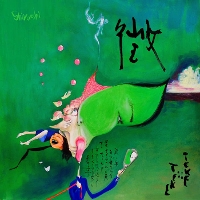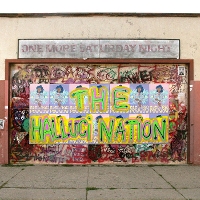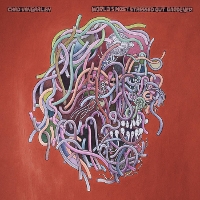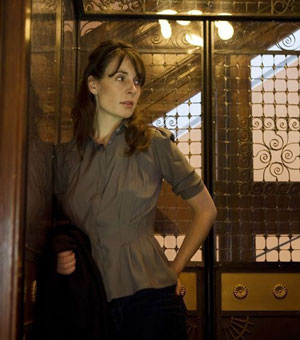 Heavy Falls the Night is jazz singer and pianist Elizabeth Shepherd's third album The Elizabeth Shepherd InterviewElizabeth Shepherd did it all - producer, composer, arranger, pianist and singer - when recording her new album Heavy Falls the Night When I think of the Salvation Army I think of people in red military costumes playing musical instruments and singing religious music outside in the freezing cold at Christmas, as they collect money for people less fortunate than themselves. That is the background of Toronto’s Elizabeth Shepherd. It seems that she had a happy, somewhat nomadic existence, growing up as a child of two Salvation Army ministers and was surrounded by music. Classically trained in Canada and France and a graduate of the McGill University music program, she eventually ended up playing and composing music more fitting for the jazz world. Her two previous CDs Start to Move and Parkdale received JUNO nominations. She has headlined her own tours and has also played keyboards for the reed player Jane Bunnett and her Afro-Cuban ensemble among others. Her new CD Heavy Falls the Night does not entirely leave the jazz world behind but if blends aspects of modern R&B and pop along with it, which suits her sultry voice. I recently spoke with Elizabeth Shepherd just before the Canadian release of Heavy Falls the Night. JD: I want to talk about your new CD Heavy Falls the Night, but before we do that let’s find out about your background. Did anyone play music in your family? ES: Yea, absolutely. My parents were both Salvation Army ministers, up until about two years ago. So, growing up in the Salvation Army we all played instruments. Dad played piano and trombone. My Mom sang and had a brief stint playing the euphonium. My older brother played piano, baritone and we all sang. JD: That’s kind of neat. ES: Ya, it was great (laughs). We would serenade at Christmas time with the full four part harmony. JD: I’ve seen a lot of those bands and there has been some pretty good talent in them. There’s no doubt about that. ES: Oh, ya and they play very complex music. JD: This is going to go back even farther. What was your first musical memory? Was it something with the family or was it something on the radio or … ?  I didn’t have an idea of what my voice was at the time. I felt like I was searching still, but with this album I really feel like this is it.
I didn’t have an idea of what my voice was at the time. I felt like I was searching still, but with this album I really feel like this is it. 
ES: It’s hard to remember what your first musical memory was because I’ve seen photos of myself listening to this one record that was a Salvation Army Brass Band record and it was apparently my favourite record. I’ve since heard it. I don’t know if this is a memory that I’ve been told. I was two and I used to devour it with these huge headphones and I think it was called Marching to Glory (laughs). But the first sonic memory that I can recall is my very first CD, which I asked for around the time CDs first came out, so I’m dating myself (laughs) and it was Edvard Grieg’s Peer Gynt Suite. I think I got that for Christmas and I would spend hours and hours listening to it. JD: That is interesting. That brings me to your musical education. I believe you have a degree from McGill University. ES: Yes. JD: When did you start taking lessons? ES: I started taking lessons when I was six. I wanted to take lessons earlier, but the deal was that my brother was only allowed to take lessons when he was six so I had to wait until I turned six also. It was the year I was in grade one. I started piano and studied at The Royal Conservatory. As I mentioned my parents were Salvation Army ministers, so we travelled around a lot and were moving every few years, so I was always doing the Royal Conservatory while we were living in Canada. As soon as we moved to France I continued with the National Conservatory there and when we came back to Canada I finished up my Royal Conservatory studies. So that was my piano education. I was also playing for choirs at the church. JD: Where did you live in France? ES: We lived in Paris. It was great. JD: You have a new CD out called Heavy Falls the Night. I believe you composed most of the songs on it. ES: I composed all of them except for “Danny’s Song” which is by Kenny Loggins and that is an early musical memory, too. JD: Ya, Kenny Loggins wrote that for his brother Danny, who at the time was, if you can use the term, an ‘expectant father.’ It was a hit for a few people, but Anne Murray scored hits on different charts with it and I think she was #1 on one chart and #7 on another. But “Danny’s Song” was very good for her. ES: Oh ya, that’s the version I know, the Anne Murray one. Anne Murray was probably the only secular music, so to speak (laughs), that was allowed into the household. So that album with “Danny’s Song” has a special place in my memory. JD: I can see that. In fact, we have an Anne Murray gospel album here that I’ve never seen anywhere else. ES: I’ve never heard of it. JD: Yes, I’ve used it for gospel sets and as we all know she has a wonderful voice and it’s good. I like your take on “Danny’s Song.” ES: Thank you. JD: It’s somewhat soulful and obviously you wouldn’t want to do the same take on it that Anne Murray did and I’m enjoying it. I had someone visiting a while back and it was on my CD player and she said, “I know that song. I know that song.” I said that she was going to have to figure out what it is. She did figure out what the song was and liked the difference and thought it was very nice and that’s kind of my take, too. ES: That’s good. JD: You mentioned you did most of the composing on Heavy Falls the Night. I want to know about your processes. What comes first the music or the lyrics? ES: Generally speaking they happen simultaneously, so I will be writing lyrical ideas down as I’m also scoring out musical ideas. Then I do the matching up at the end; but, generally I work on all the musical elements first and get a sense of where the song is going in terms of mood and emotional weight to it; you know, what sort of associations it is bringing up. And then I will get some of these lyrical ideas I’ve written down and go with something and write the lyrics around what the working melody is. JD: So apparently you can multi-task. ES: (laughs) I don’t like to sit still, so I multi-task in most everything (laughs). JD: That’s kind of cool. Do you prefer any time of day over another for composing? ES: I can’t say that I do. If there’s something special that helps, it’s having a day where I have nothing else planned, that I can just settle into this mode and know I don’t have to go anywhere and I’m not mentally preparing for something else. As long as I have that I find it particularly helpful, but I wouldn’t say it’s specific to morning or evening or anything like that. JD: That makes sense. Your mind is focused to one thing as opposed to a whole bunch of things and your best work would result. ES: Ya. JD: Heavy Falls the Night is the first album you produced entirely. What are the pros and cons of doing that? ES: I don’t think there are any cons. I think it is all pros in my books, right now. In the previous two albums I had an idea where I wanted them to go, but I didn’t feel—and this wasn’t conscious and it certainly wasn’t something I could have articulated at the time—but I didn’t have an idea of what my voice was at the time. I felt like I was searching still, but coming up with something; but with this album I really feel like this is it. This is the first album that I feel is entirely my own voice. For that reason it felt natural to do the production myself because I had a very, very specific idea. You know—this should be louder here; this should be fading in at this point and panning from this side to that side—like everything, I really had a sense of exactly how I wanted it to go, because I put so much thought into the songs and so much of myself into the songs. And I guess that’s new, but I don’t know any other way that it would have worked. JD: Ok. It seems that many young artists with jazz reputations, such as yourself are finding their musical voice in a more modern sound. Why do you think that is? ES: I think it is because we are growing up with so much sonic influence, so to speak. There are so many sounds around us and you know it’s funny that the more you hear the more you have to choose from and the more informed the music you make can be. I’m not sure entirely what you mean by a modern sound, but I think there’s more of a priority now with people especially in jazz but just generally musicians want to find there own voices and there’s a great emphasis on that and less on finding that great hit and doing a cover version of that. I think there’s more of a renewed respect for the writing process. JD: Great! There’s been a few of you doing that. There’s a local women, Terra Grimard, who has done jazzy stuff in the past, and I guess you know Brandi Disterheft who’s last album had definite modern influences from all over the place and all three of you are having wonderful results blending your music through different genres and it’s really enjoyable for the listener. I noticed you wrote the music to two of Hamilton poet James Strecker’s poems. Do you find it more difficult to write music to someone else’s words as opposed to your own lyrics? ES: In terms of writing out a melody or writing a song, no I don’t find that hard. James (Strecker) sent me a whole slew of poems; all of which were wonderful because he is just a phenomenal poet, but the hard part is finding something that resonates and I really feel I can make my own and I guess people who are doing cover tunes and are singing standards would encounter the same thing. Who are you going to make these lyrics yours. If you write something obviously it’s yours, but it’s more difficult when someone else has written it and I can appreciated what he has written on certain poems, there were just a handful that I felt, yes I can sincerely make these really mine and deliver them with conviction. That was the hard part and it wasn’t so much matching the melody to the poetry because he has tremendously lyrical flow. JD: Those songs are beautiful. They are “A Song for Dinah Washington” and “High.” Your music really does justice to the poet’s words. ES: Good. JD: March 8th was International Women’s Day and I like to use the answer to this question on my annual International Women’s Week show on Jazz Notes. Do you find you that you have encountered any challenges in the music world based on your gender? ES: I find that it is more of a pet peeve that people assume I’m not going to be any good when I show up on a gig and I like to see their faces change when they realize that she can actually play. They are even surprised that I’m playing and not a singer and there’s another assumption that all females are singers. I don’t know if that’s a challenge but it’s certainly a frustration sensing that people don’t take me seriously and I have to constantly prove that hey I’m a good musician too. I think that if I were a guy going into that situation I wouldn’t have to prove anything. JD: Occasionally your voice reminds me a bit of Rickie Lee Jones, the American singer, with less of a southern accent of course. Am I hearing that sort of style? I might think I’m hearing it because I am a huge fan of Rickie Lee Jones or maybe I’m just crazy. ES: I didn’t notice that. I haven’t checked her out a lot, but I did check her out maybe two years back because somebody had said that already. So you’re not totally crazy and you’re not alone in thinking that. I don’t think I would have thought of that myself only because I’m not familiar enough with her to know that I’m channelling little bit of this sound right now. JD: That’s good to hear that at least about something I’m not totally crazy (laughs). ES: No, not at all. JD: So when is Heavy Falls the Night going to be available and who can we get it? ES: It’s already out in Japan and we just got back from six nights in Tokyo for the launch there and it comes out in Canada on March 16th. We are heading east first and then as far west as Calgary and that’s happening in May. We are planning on being in B.C. later in the summer or possibly early fall. We are heading to the States in June and over to Europe in October. JD: You’re a busy women. That’s excellent. ES: I like to stay busy. JD: So where is Heavy Falls the Night going to be available? ES: You can get a single, a couple or all the songs on i-Tunes and there’s a link on the website elizabethshepherd.com to purchase the album and that’s probably the easiest way to buy the album. |
Reviews
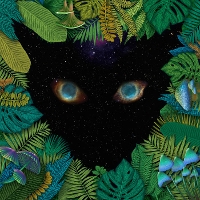
Mngwa
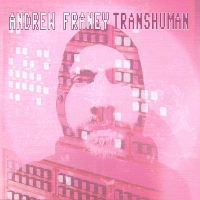
Andrew Franey
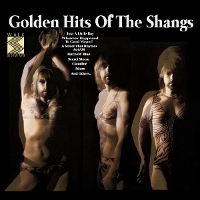
The Shangs

Alex Cuba

Tri Nguyen
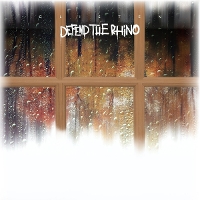
Defend The Rhino
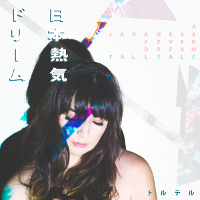
Talltale
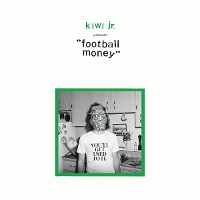
Kiwi Jr.

Plaster
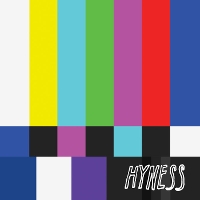
Hyness
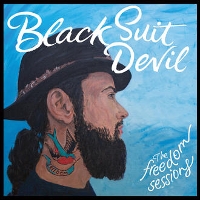
Black Suit Devil
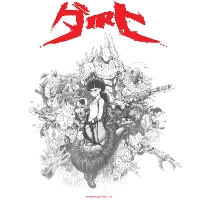
Yamantaka // Sonic Titan
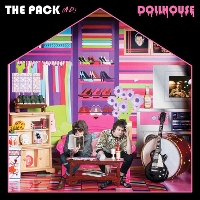
The Pack A.D.
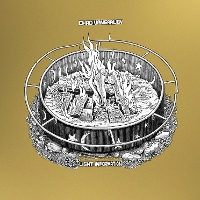
Chad VanGaalen

Potengowski Anna Friederike
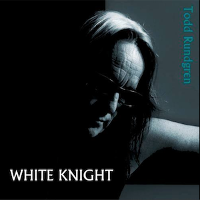
Todd Rundgren

Old 97's
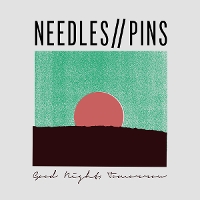
Needles//Pins


